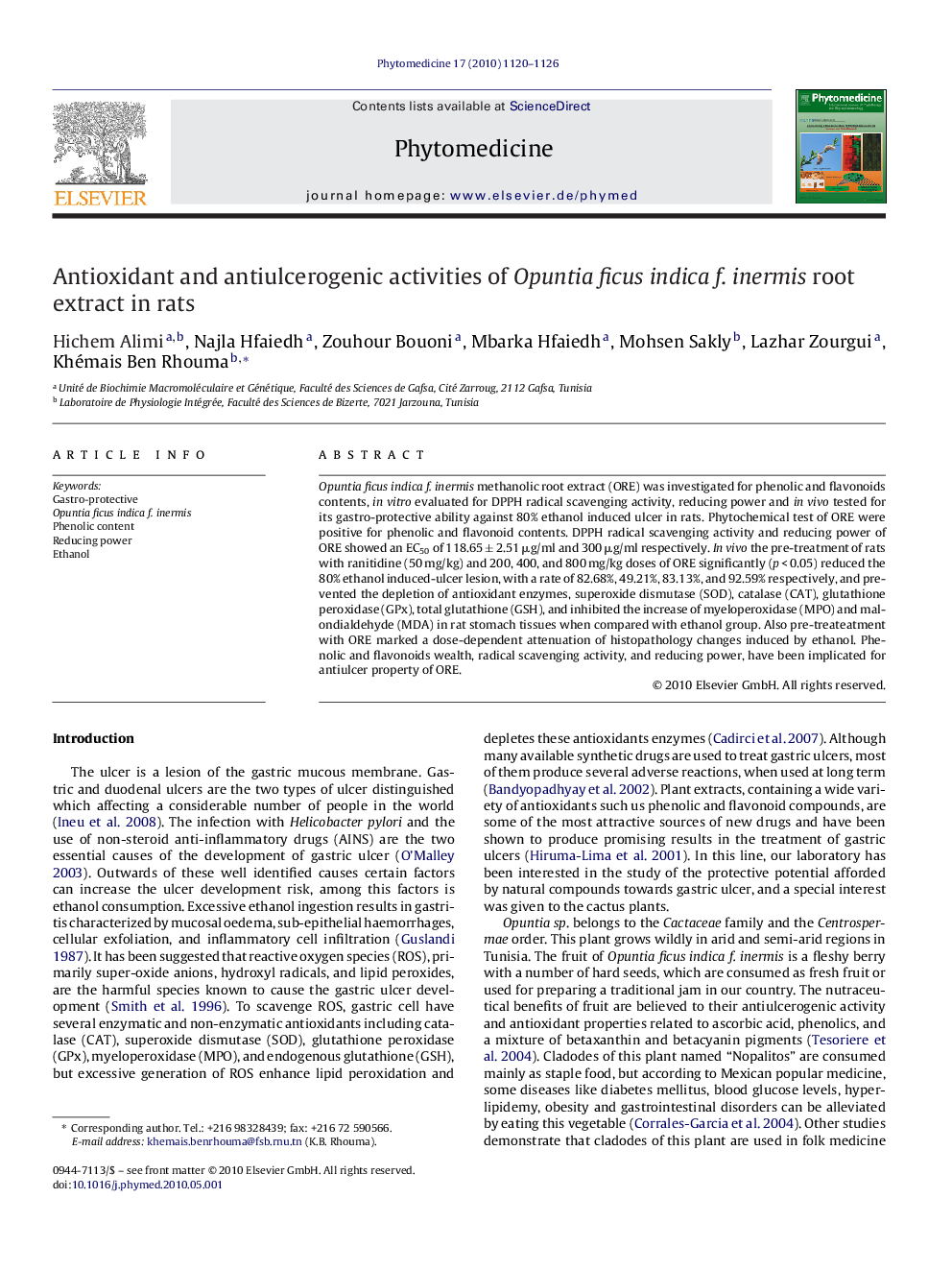| Article ID | Journal | Published Year | Pages | File Type |
|---|---|---|---|---|
| 2497173 | Phytomedicine | 2010 | 7 Pages |
Opuntia ficus indica f. inermis methanolic root extract (ORE) was investigated for phenolic and flavonoids contents, in vitro evaluated for DPPH radical scavenging activity, reducing power and in vivo tested for its gastro-protective ability against 80% ethanol induced ulcer in rats. Phytochemical test of ORE were positive for phenolic and flavonoid contents. DPPH radical scavenging activity and reducing power of ORE showed an EC50 of 118.65 ± 2.51 μg/ml and 300 μg/ml respectively. In vivo the pre-treatment of rats with ranitidine (50 mg/kg) and 200, 400, and 800 mg/kg doses of ORE significantly (p < 0.05) reduced the 80% ethanol induced-ulcer lesion, with a rate of 82.68%, 49.21%, 83.13%, and 92.59% respectively, and prevented the depletion of antioxidant enzymes, superoxide dismutase (SOD), catalase (CAT), glutathione peroxidase (GPx), total glutathione (GSH), and inhibited the increase of myeloperoxidase (MPO) and malondialdehyde (MDA) in rat stomach tissues when compared with ethanol group. Also pre-treateatment with ORE marked a dose-dependent attenuation of histopathology changes induced by ethanol. Phenolic and flavonoids wealth, radical scavenging activity, and reducing power, have been implicated for antiulcer property of ORE.
